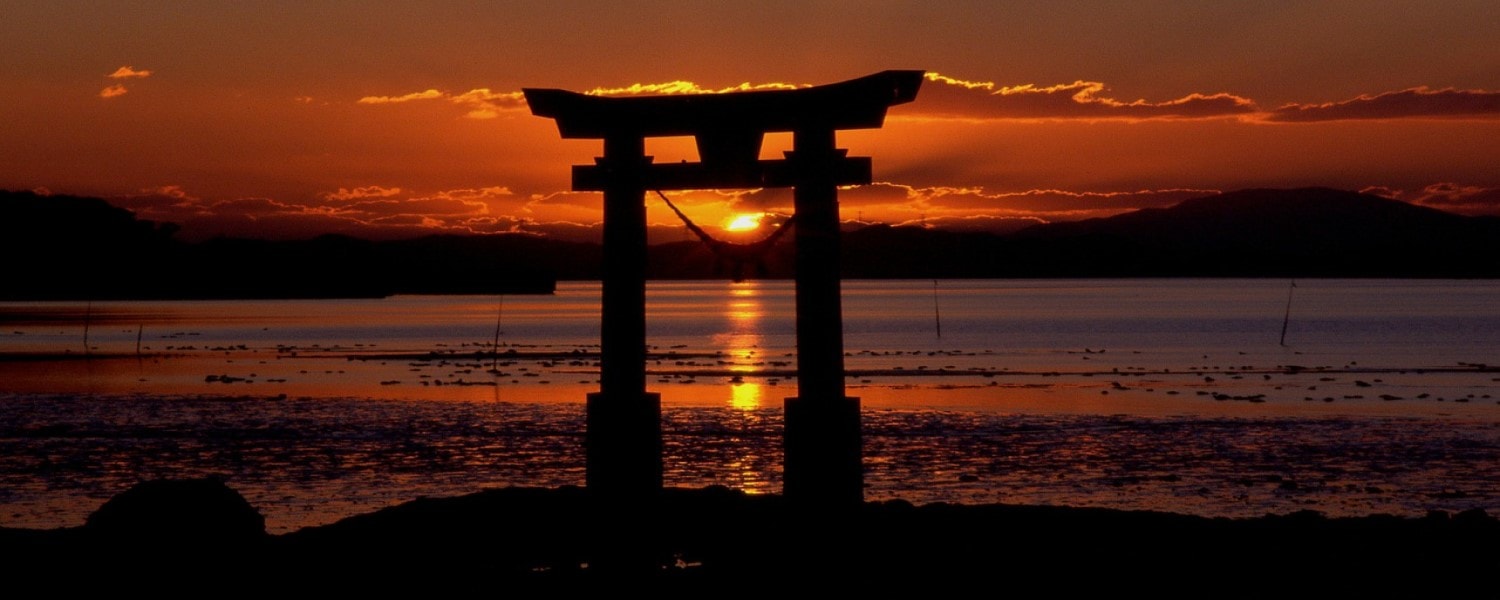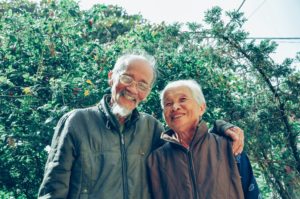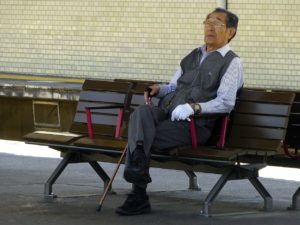This is How to Live a Long Life: The 10 Rules of Ikigai
I want to live forever!
Ok, now that I have your attention. Of course, that is a ridiculous statement, even for me. None of us can or will live forever, that is part of life. Being aware of our mortality is one of the things that not only separates us from other mammals but in my opinion, is what makes life great. Knowing that we will die someday is one of the most powerful reminders that we have to live in the moment. That being said, I still want to live as long as I can, as productively and healthily as I can. Being someone who is semi-obsessed with slowing down the aging process and living longer, I recently picked up a great book on how to live a long life. The book is called Ikigai: The Japanese Secret to a Long and Happy Life. It describes a group of people who it seems has hacked longevity, so my thinking is, “Why reinvent the wheel? Let’s study what they do…”

Iki-what?
The word is Ikigai and it is a Japanese concept which basically translates to “the happiness of always being busy”. It is significant because according to the authors, Hector Garcia, and Francesc Miralles, it is one of the reasons that explain the longevity of the Japanese. This is especially true on the island of Okinawa, “where there are 24.55 people over the age of 100 for every 100,000 inhabitants—far more than the global average.”1
Those who study the longevity of those on the island attribute one of the main reasons (others being diet, a simple life in the outdoors, green tea and the warm climate) to the ikigai that guides their life.
According to those who live on the island, the ikigai is “the reason we get up in the morning.”1
While the book goes into great detail on how to cultivate your ikigai, I will simply share the 10 rules of ikigai on how to live a long life.
The 10 Rules of Ikigai…
…on how to live a long life are as follows:
(1) Do not retire…Stay active!
Interestingly, unlike the West, many people in Japan do not ‘retire’, they simply keep doing what they love as long as their health permits. The concept of having a purpose in life is so critical to them that our idea of retirement is completely foreign to them. If you do retire, the idea is to keep doing things of value to help others and shape the world.
(2) Slow Down
They believe that being in a hurry detracts from the quality of life. By leaving urgency behind, time and life take on new importance and meaning. The authors observed on their visit that everyone in Ogimi was busy with important tasks, but they were all done with a sense of calm. In other words, do less more slowly, but with great purpose!
(3) The 80% Rule
A popular saying in Japan is, “Hara hachi bu.” which they say before and after eating which roughly translates to “Fill your belly to 80%.” Instead of eating until they are full, they stop eating when their stomachs reach 80% capacity. This limits overeating and prevents drawn out digestive processes that speed up cellular oxidation. Of course, 80% is subjective but the idea is to stop eating when you start to feel full. Another trick the Japanese use is to serve food on smaller plates!
(4) Hang out with good friends
Spending time with friends is another key aspect for how to live a long time. Talking, sharing stories, giving and receiving advice, and having fun every day is a big part of their lives. They all belong to some type of neighborhood association, which is a family like atmosphere where they feel cared for.
(5) Stay in shape
While they don’t go to the gym or exercise intensely, they do move…A LOT! In fact, they never stop moving throughout the day – which is likely a key to their longevity. Exercise also releases hormones called endorphins which make us feel happy.

(6) Smiling!
As one of the women the authors met with in Ogimi, who was 88, said: “The secret is smiling and having a good time.” Those who live on the island are constantly celebrating – dancing, music, and song are big parts of their lives. They believe that smiling not only helps them make friends, but it is relaxing.
(7) Connecting with nature
While many of us live in the city, it is always good to get out and connect with nature. We were made to be part of the natural world and spending time in nature is a great way to recharge our batteries.
(8) Being grateful
As one of the residents said to the authors, “I feel very fortunate to have been born here. I give thanks for it every day.” Being grateful for everything you have and for just being alive is a great way to watch your happiness grow.
(9) Living in the present
There is a common stereotype of the Japanese which is that they are very hardworking and dedicated. While that is no doubt true, what is also true is that they are also very skilled at being absorbed in a task by living in the moment. They are able to stop regretting the past and obsessing about the future to enjoy and focus on the here and now.

(10) Following your ikigai!
There is a passion inside all of us, a unique skill or talent that gives our days meaning. It is our reason for getting up in the morning. If we haven’t found it yet, it is our mission to keep searching for it! If you need help finding yours, see our blog post on how to develop your personal mission statement.
Let’s end this blog post on how to live a long life with a song that was sung to the authors during their stay in Ogimi, a village that holds the Guinness record for longevity. It was sung to them in a mixture of Japanese and the local dialect by a woman who was about to turn 100 years old!
An Ode to Longevity
“To keep healthy and have a long life,
Eat just a little of everything with relish,
Go to bed early, get up early, and then go for a walk.
We live each day with serenity and we enjoy the journey.
To keep healthy and have a long life,
We get on well with all of our friends,
Spring, summer, fall, winter.
We happily enjoy all the seasons.
The secret is to not get distracted by how old the fingers arel
From the fingers to the head and back once again.
If you keep moving with your fingers working, 100 years
Will come to you” 1
Until next time, keep following your Ikigai for how to live a long life, and as always…PYMFP!
–Rick
P.S. Wanna know more? Check out the entire book.
Use It or Lose It – How to Live a Long Life
The 10 rules of ikigai for how to live a long life are as follows:
(1) Do not retire…Stay active!
(2) Slow Down
(3) The 80% Rule
(4) Hang out with good friends
(5) Stay in shape
(6) Smile
(7) Connect with Nature
(8) Be Grateful
(9) Live in the Present
(10) Follow your Ikigai!
When to Use It:
For how to live a long life.
What Do You Think?
Do you currently follow many of the 10 rules of ikigai for how to live a long life? Are there some you may incorporate into your life after reading this blog post? Please share your thoughts in the comments below!
If you enjoyed this post, it would mean the world to us if you shared it with people you care about via any of the social media platforms below!
Popular Previous Posts:
The Bandwagon Effect: How to Jump Off This Cognitive Bias
14 Examples of What Not to Say When Speaking to Others!
You/re Welcome! How to Write a Thank You Note in 5 Steps
This is How Champions Think: 11 Secrets to Their Success
References
García, H., Miralles, F., & Cleary, H. (2017). Ikigai: The Japanese Secret to a Long and Happy Life. New York, New York: Penguin Books.

Love it! I am in agreement but I have difficulty with eating until I am only 80% full, lol
Hi Eileen, Most people in North America do! You are not alone, haha. It’s just discipline. You can also use the 10 10 10 rule to help you through it! Be good, Rick
The article appeared in Times of India on Jan 20, 2019 as IKIGAI : the reason to live.
I retired in July 2018 after serving at India Post for 4 decades.living happily as ever with family with a bundle of joy a ka grand daughter.
Losing my soul early part of my life felt the need of life sans stress depression .
Being a voracious reader able to keep the fire alive .contented & leading a healthy life .
The article (preserved) is a good one & be a moral as well .
Hi there! Interesting, I just Googled it and read it, thanks for sharing! 4 decades! That is incredible. I too am a voracious reader and you are right, it does help keep the fire alive!!! Thanks for reading and for taking the time to comment, we appreciate it very much. Take care, Rick
I completely agree with you on this one, but……we have a totally different culture than Japan. The 20th (and now 21st) century lifestyle most of us experience leaves very little time to pursue one’s ikigai. Terrible commutes, the pressure to succeed, driving the kids to all sorts of activities, family pressures – stuff like that stresses you out. It’s the things you have to do, not the things you want to do. The urban/corporate environment runs contrary to the concept of ikigai.
I retired at age 60, and have never looked back. I had always believed that I made three important life altering decisions, early retirement became the fourth. I love it, and have not looked back. My stress level dropped to almost zero, I’m sleeping better, and generally seem to have a much more positive attitude.
Just recently, like within the past week, Joan and Amy (sneaky wenches that they are, I like that) pulled off a major coup. They arranged a surprise party for my milestone birthday. I knew nothing about it, had no ideas what was going to happen. The two of us were originally supposed to go out for lunch at a local barbeque joint. We arrive, and I wonder why Joan is walking into the bar area, usually we eat in a booth. Well, that’s where everything was set up. I was totally oblivious and confused. 21 people had snuck in early and were all setting there. It was a knock-down drag-out totally fabulous afternoon. Did wonders for boosting my spirit, sure helped cure the annual January blahs, and included 4 or 5 ikigai items.
There’s one more item that affects your life span, and unfortunately you cannot control it. I’m speaking of genetics. You either have it or you don’t. I am convinced that I do.
Hi Dave, I agree and disagree. For sure there is a cultural aspect to it and our hectic lifestyles do make it a challenge. But, on the other hand, I believe there are some people who use it as an excuse. If something is a priority you will make time for it. And to your point, once you retire, all those challenges go out the window. Well, HAPPY BELATED BIRTHDAY!!! That is so amazing that Joan and Amy did that for you, and I am sure you deserved it and more!! Wishing you and your great genetics many more!!! Take care, Rick